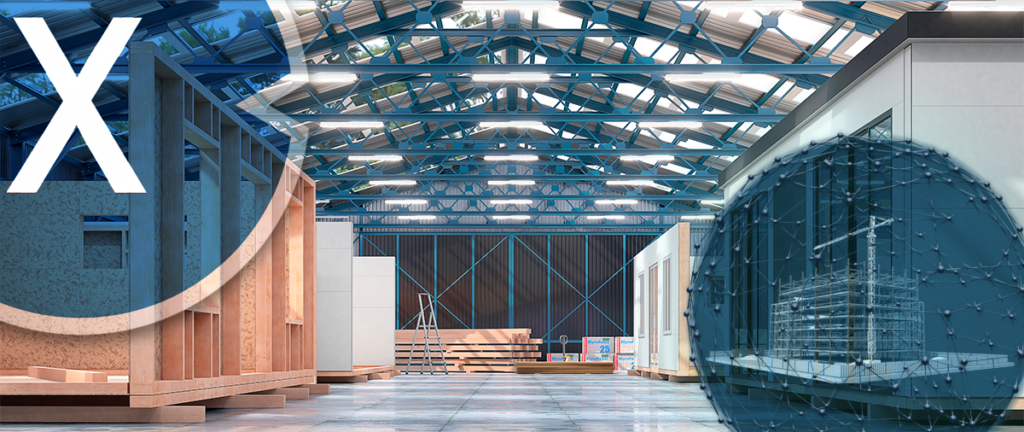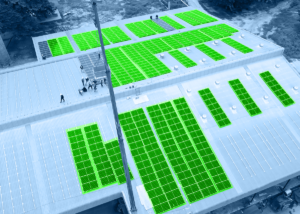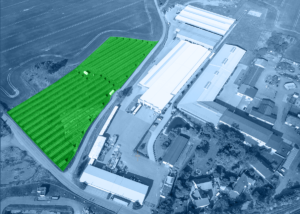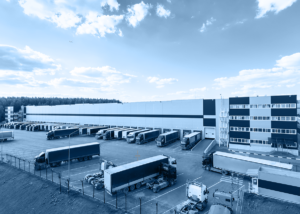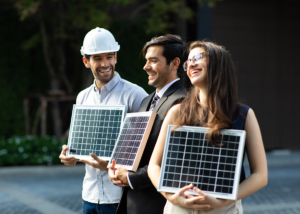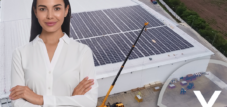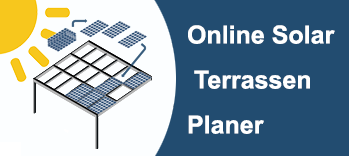Energy renovation: Reduce energy consumption, minimize heat loss and improve energy efficiency
Language selection 📢
Published on: July 7, 2023 / Update from: July 9, 2023 - Author: Konrad Wolfenstein
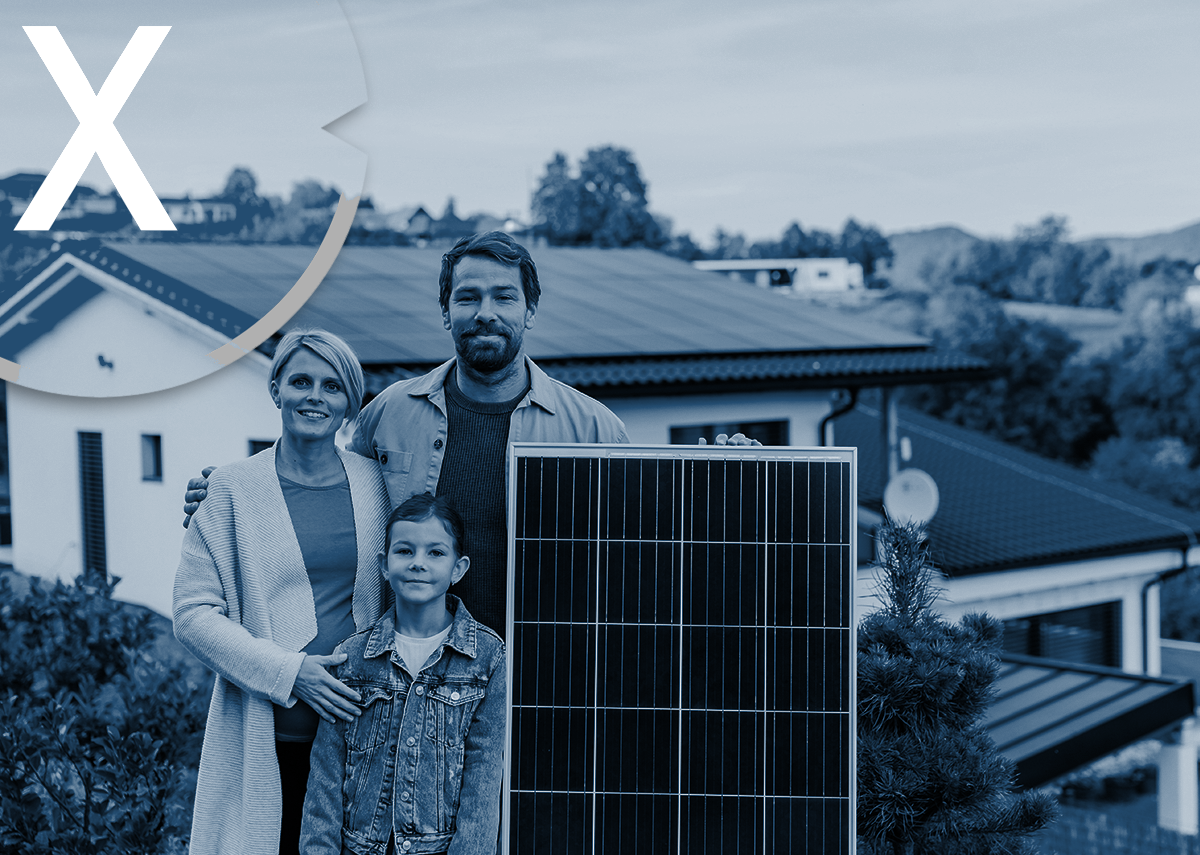
Energy renovation: Reduce energy consumption, minimize heat loss and improve energy efficiency - Image: Xpert.Digital / Halfpoint|Shutterstock.com
Focus on energy efficiency: The key components of energy-efficient renovation
Energy renovation refers to measures taken to reduce a building's energy consumption and improve energy efficiency. The aim is to minimize heat loss, reduce energy consumption and increase living comfort. Here are some important aspects of energy renovation:
insulation
Effective insulation of the building envelope is crucial to reducing heat loss. This includes insulating the roof, walls, floors and windows to reduce the energy required for heating and cooling.
Heating systems
Replacing outdated heating systems with energy-efficient options such as condensing boilers, heat pumps or solar panels can significantly reduce energy consumption.
ventilation
An efficient ventilation system with heat recovery can improve comfort while reducing energy consumption.
Renewable energy
The integration of renewable energies such as photovoltaics or solar thermal energy can further reduce the building's energy requirements and reduce the use of fossil fuels.
Building automation
The installation of intelligent control systems enables optimized control of heating, lighting and other electrical devices to optimize energy consumption.
Funding programs
Many countries and regions offer financial incentives and support programs for energy renovation measures to support homeowners and make the process more economically attractive.
➡️ It is important to note that energy renovation should be individually tailored, as every building has different requirements and potential. Energy advice or contact with experts in the field of energy renovation can help find the best solutions for a particular building.
📣 Energy-related renovation and new construction, consulting, planning and implementation for industry, retail and municipalities
Our experienced team will support you in optimizing your buildings to reduce energy consumption and promote sustainable energy use with photovoltaics. We analyze your individual needs and create tailor-made concepts that make sense both economically and ecologically. Regardless of whether it is about the energy-efficient renovation of existing buildings or the construction of new energy-efficient structures, we are at your side. Industrial facilities, retail buildings and municipal facilities can reduce their energy costs and reduce environmental impact while improving the comfort and efficiency of their buildings through our tailored solutions.
👨🏻 👩🏻 👴🏻 👵🏻 Energy-saving renovation and new construction, advice, planning and implementation for private households
We offer comprehensive support for private households in the energy-efficient renovation and construction of new buildings with photovoltaics. Our experienced team is at your side to help you advise, plan and implement your sustainable energy solutions. We analyze your energy consumption, identify savings potential and develop tailor-made concepts to improve your energy efficiency. From improving building insulation to installing energy-efficient windows and doors to installing photovoltaic and solar systems - we accompany you step by step to make your home more energy efficient and environmentally friendly. Trust in our expertise and benefit from the numerous advantages that energy renovation and the use of renewable energies offer you. Together we will create a sustainable future for your home.
Energy-efficient renovation, consulting, planning and implementation: A comprehensive process for energy-efficient buildings
The energetic renovation of buildings is a complex process that requires sound advice, careful planning and precise implementation. This text takes a closer look at the various phases of the renovation process in order to give you a comprehensive insight into the meaning and process of an energy renovation.
Energy advice
The first step in an energy renovation is to consult an energy consultant or expert. These professionals conduct a comprehensive analysis of the building to assess current energy consumption and identify potential savings. Various aspects such as insulation, heating systems, ventilation and renewable energies are taken into account. Energy consulting helps to develop a tailor-made renovation strategy and maximize the building's efficiency potential.
Building analysis and energy audit
A detailed energy audit is often carried out as part of the consultation. This involves collecting extensive data about the building, such as building age, building materials, thermal bridges, window areas and energy consumption data. Using modern measurement techniques and simulation software, energy requirements, heat losses and potential for improvement are determined. The energy audit forms the basis for further planning and implementation of the energy renovation.
Renovation concept and planning
An individual renovation concept is developed based on the results of the energy audit. This includes concrete measures to improve energy efficiency, their prioritization, cost estimates and schedules. The renovation concept takes both technical and economic aspects into account and enables well-founded decision-making. In addition, legal and financial framework conditions such as funding programs, building regulations and possible approval procedures are taken into account.
Implementation of the renovation measures
As soon as the renovation concept has been agreed, the implementation of the measures can begin. This requires close collaboration between specialists such as architects, civil engineers, craftsmen and energy consultants. Depending on the type and extent of the renovation, various trades can be involved, such as roofers, heating engineers, electricians or window fitters. Careful coordination of the work is crucial to ensure smooth operations and high-quality execution.
Quality assurance and monitoring
Regular quality control is very important during the construction phase. The work carried out is checked for professional execution and efficiency. This includes, for example, checking the insulation density, checking the installation of heating systems or commissioning ventilation systems. Thorough monitoring ensures that the desired energy savings are achieved and possible defects can be identified and corrected in a timely manner.
Follow-up care and monitoring
After the renovation work has been completed, it is advisable to continue monitoring the building and documenting energy consumption. This makes it possible to evaluate the actual effect of the renovation and make adjustments if necessary. Building automation systems can also be used to optimize energy consumption and maximize comfort.
➡️ Energy-saving renovation requires a holistic view and an interdisciplinary approach. Advice, planning and implementation must be carefully coordinated to achieve the desired energy savings and improvements. Through professional implementation, both ecological and economic benefits can be realized by reducing energy consumption, increasing living comfort and increasing the value of the property.
Funding programs and financial incentives: Cost-optimized energy-saving renovation for every building
An energy-efficient renovation can be a worthwhile investment to reduce energy consumption, improve living comfort and save costs in the long term. To support homeowners in implementing such renovation measures, many countries and regions offer extensive support programs and financial incentives. Here, different types of funding programs are highlighted and shown how they can make energy-efficient renovations cost-effective for every building.
Grants and grant programs
Many governments and public institutions offer subsidies for energy-efficient renovations. These grants can cover a percentage of the investment costs or provide a fixed amount per measure. The amount of subsidies varies depending on the region and program, and different requirements such as minimum standards for energy improvement may have to be met. Grant programs can reduce the financial burden of renovation and increase the incentive for homeowners to implement energy efficient measures.
Credits and loans
In addition to grants, low-interest loans or loans for energy-efficient renovations are also offered. These financing options allow homeowners to pay off renovation costs over a longer period of time without paying high interest rates. Loan terms vary by program and may be provided by state banks, utility companies or specialized financial institutions. The option of low-cost financing can make it easier for homeowners to invest in energy-efficient measures without incurring large financial burdens all at once.
Tax benefits and deductibility
In some countries, certain expenses related to energy renovations can be deducted from taxes. This means that the costs of materials, labor and consulting services can be deducted from taxes. In addition, tax breaks can be granted for certain energy-efficient measures, such as the installation of solar energy systems or the use of renewable energy. Tax deductibility can increase the financial incentive for energy-efficient renovation and increase the economic attractiveness for homeowners.
Funding programs for building modernization
Many countries have developed special funding programs for the energy-efficient renovation of buildings. These programs offer a wide range of support, from general funding for renovation measures to specific funding for specific technologies or components. Examples of supported measures include insulating the roof and facade, replacing heating systems, installing renewable energies or switching to energy-efficient lighting. The funding programs are often administered by government agencies, energy agencies or climate protection organizations and offer clear guidelines and application procedures.
Energy efficiency certificates and trading systems
In some countries there are energy efficiency certificates and trading systems that reward homeowners for their energy renovation measures. By implementing efficiency measures, certificates can be acquired, which can then be traded or sold to energy supply companies. This creates incentives for homeowners to invest in energy efficiency and derive financial benefits from certificate trading.
➡️ The variety of funding programs and financial incentives allows homeowners to find the right support measures for their specific situation. The combination of various subsidies can significantly reduce the financial burden of energy-efficient renovation and accelerate the return on investment. It is advisable to find out about the support programs and incentives available in your own region and to work with professionals such as energy consultants or construction experts to receive the best possible financial support.
Plan your solar system for the most common applications conveniently online with our solar system planner!
With our user-friendly solar system planner you can plan your individual solar system online. Whether you need a solar system for your home, your business or for agricultural purposes, our planner offers you the opportunity to take your specific requirements into account and develop a tailor-made solution.
The planning process is simple and intuitive. You simply enter relevant information. Our planner takes this information into account and creates a tailor-made solar system that meets your needs. You can try out different options and configurations to find the optimal solar system for your application.
Additionally, you can save your plan to review later or share with others. Our customer service team is also available to answer your questions and provide support to ensure your solar system is optimally planned.
Use our solar system planner to plan your individual solar system for the most common applications and advance the transition to clean energy. Start now and take an important step towards sustainability and energy independence!
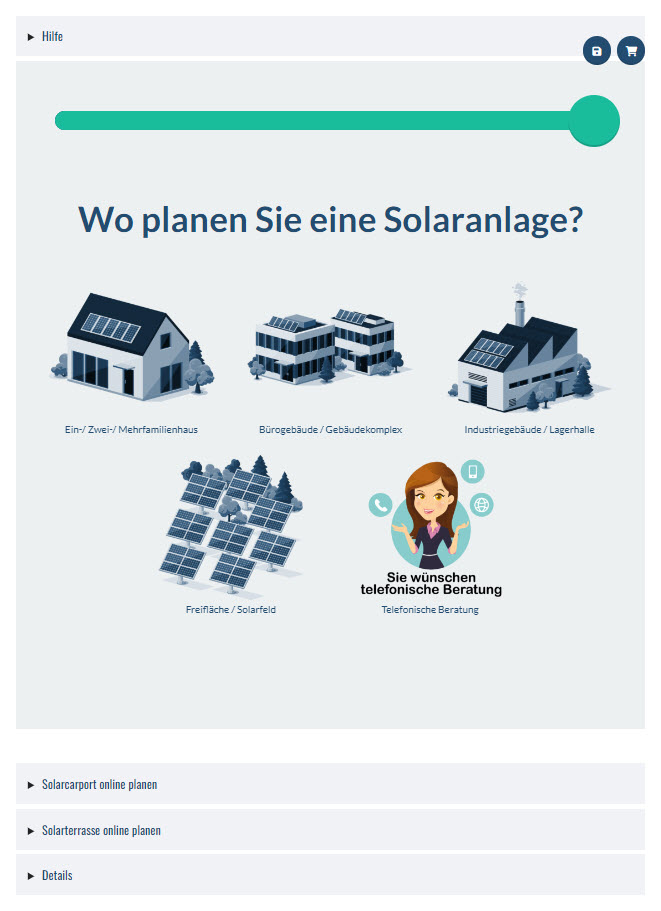
The solar system planner for the most common applications: Plan the solar system online here - Image: Xpert.Digital
More about it here:
Focus on energy efficiency: The key components of energy-efficient renovation
Energy renovation is an essential part of efforts to reduce the energy consumption of buildings and improve energy efficiency. An effective renovation can not only lead to significant energy savings, but also increase living comfort and increase the value of the property.
insulation
One of the most important measures in an energy-efficient renovation is the effective insulation of the building envelope. A well-insulated building envelope minimizes heat loss and therefore reduces the energy required for heating and cooling. Different areas of the building require specific insulation measures: the roof, the walls, the floors and the windows. Modern insulation materials such as mineral wool, cellulose or polyurethane foam offer high thermal insulation performance and can be used effectively in various areas.
Heating systems
Outdated heating systems are often inefficient and use unnecessary amounts of energy. Replacing these systems is therefore very important during an energy renovation. Modern and energy-efficient heating systems such as condensing boilers, heat pumps or solar collectors can significantly reduce energy consumption. Condensing boilers use the waste heat from combustion gases to generate additional energy, while heat pumps use the ambient heat to heat the building. The integration of solar collectors makes it possible to use solar energy to prepare hot water or to support heating.
ventilation
An efficient ventilation system with heat recovery is another important component of an energy-efficient renovation. Controlled ventilation ensures air exchange in the building, which leads to better indoor air quality and prevents moisture problems. With heat recovery, the ventilation system uses the heat of the extracting air to preheat the fresh air supplied, thereby reducing energy loss. Modern ventilation systems have efficient heat exchangers and energy-efficient fans to further minimize energy consumption.
Renewable energy
The integration of renewable energies is playing an increasingly important role in energy renovation. Photovoltaics (PV) and solar thermal energy are two common technologies that can help reduce energy needs. PV systems convert sunlight directly into electrical energy and can meet a building's electricity needs. Solar thermal systems use solar energy to produce hot water or support the heating system. By using renewable energies, the consumption of fossil fuels can be significantly reduced and the environmental impact reduced.
Building automation
Intelligent control systems are an emerging component in energy renovation. Energy consumption can be optimized by integrating sensors, automated controls and energy management systems. For example, heating, lighting and electrical devices can be automatically controlled based on occupancy, room temperature and time of day to minimize energy consumption. Smart home solutions also offer the ability to monitor and remotely control energy consumption, further improving comfort and energy efficiency.
Funding programs
In order to support and promote energy-efficient renovation, many countries and regions offer financial incentives and funding programs. These programs may include grants, low-interest loans, or tax breaks. They help homeowners reduce renovation costs and increase the economic incentive for energy efficient measures. It is worth checking the funding options available and seeking advice from experts or energy consultants in order to benefit from these programs.
➡️ Energy-saving renovation is a worthwhile investment that offers both ecological and economic benefits. By reducing energy consumption and improving energy efficiency, building owners and users can benefit from lower energy costs and increased living comfort in the long term. Through the use of insulation, efficient heating systems, modern ventilation systems, renewable energies, building automation and the use of funding programs, buildings can become efficient and sustainable energy consumers.
- Warehouses, production halls and industrial halls with their own power source from a photovoltaic roof system - Image: NavinTar|Shutterstock.com
- Industrial plant with its own power source from an outdoor photovoltaic system - Image: Peteri|Shutterstock.com
- Plan solar systems with photovoltaic solutions for freight forwarding and contract logistics
- B2B solar systems and photovoltaic solutions & advice
- Plan photovoltaics for warehouses, commercial halls and industrial halls
- Industrial plant: Plan a photovoltaic open-air system or open-space system
- Plan solar systems with photovoltaic solutions for freight forwarding and contract logistics
- B2B solar systems and photovoltaic solutions & advice
Expert advice on energy-saving renovation via Xpert
I would be happy to serve as your personal advisor.
You can contact me by filling out the contact form below or simply call me on +49 89 89 674 804 (Munich) .
I'm looking forward to our joint project.
Xpert.Digital – Konrad Wolfenstein
Xpert.Digital is a hub for industry with a focus on digitalization, mechanical engineering, logistics/intralogistics and photovoltaics.
With our 360° business development solution, we support well-known companies from new business to after sales.
Market intelligence, smarketing, marketing automation, content development, PR, mail campaigns, personalized social media and lead nurturing are part of our digital tools.
You can find out more at: www.xpert.digital – www.xpert.solar – www.xpert.plus



